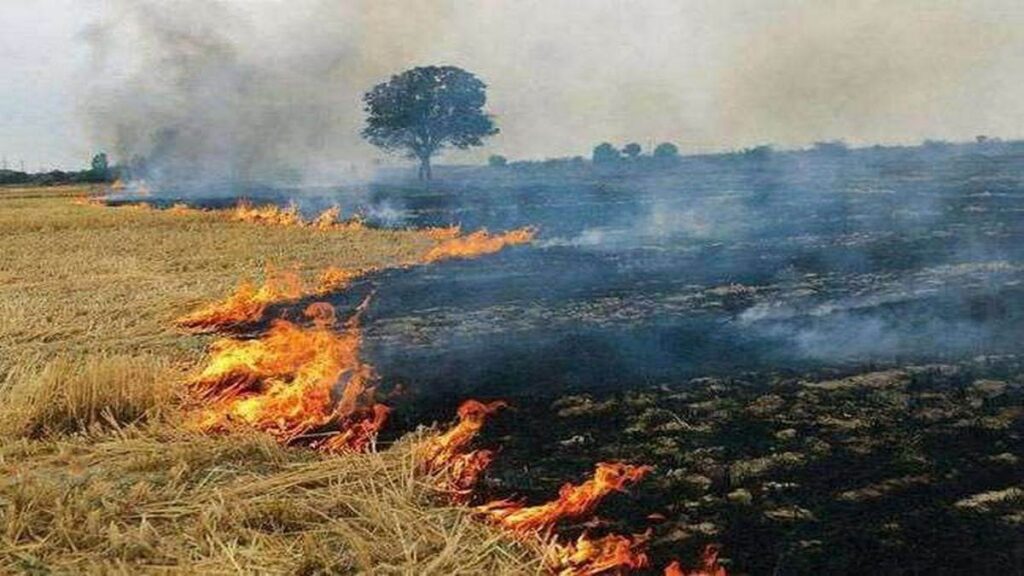With the paddy harvesting season underway, stubble burning incidents have increased in Punjab, which is expected to impact air pollution in Delhi-NCR and North India.
According to the latest report from the Commission for Air Quality Management (CAQM), 31 new cases were reported in a single day till October 15, taking the total number in the state to 165.
Amritsar leads, Tarn Taran second
Amritsar district has reported 68 cases—the highest in the state. It is followed by Tarn Taran with 47, Patiala with 11, and Ferozepur with 6. Meanwhile, districts like Moga, Muktsar, Rupnagar, and Pathankot have reported no cases so far.
Stubble burning confirmed at 97 sites in 165 inspections.
According to the CAQM report, 165 sites have been inspected so far, of which stubble burning was confirmed at 97. Taking action on this, environmental compensation of ₹4.40 lakh has been imposed on 89 farmers, of which ₹3.15 lakh has been recovered.
The Punjab government has
launched a vigorous surveillance campaign to curb stubble burning. According to reports, more than 80 FIRs have been registered under Section 223 of the BNS. 55 farmers have also been issued “red entries” in their revenue records—meaning violations have been noted in their land records.
Amritsar and Tarn Taran have seen the most action.
Amritsar has so far recorded 32 fines, 32 FIRs, and 32 red entries against farmers. Tarn Taran has recorded 47 FIRs and 13 red entries.
The report states that no nodal or supervisory officer has been prosecuted so far, but 67 warning and show-cause notices have been issued.
Appeal to farmers to adopt alternative methods
CAQM has urged the state administration to crack down on incidents of crop residue burning and encourage farmers to adopt alternative management methods.
So far, about 19.5% of Punjab’s 31.72 lakh hectares of paddy area has been harvested.

